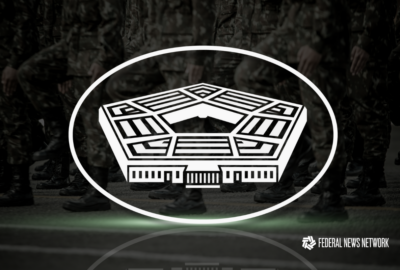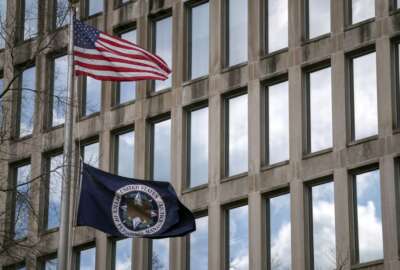Hubbard Radio Washington DC, LLC. All rights reserved. This website is not intended for users located within the European Economic Area.
On Air: Federal News Network
Trending:
Hatch Act overdue for an update say lawmakers
Rep. Darrell Issa (R-Calif.) said the law governing political activity by federal workers has not kept pace. Congress has not modernized the Hatch Act since 199...
wfedstaff | June 4, 2015 7:36 am
By Jason Miller
Executive Editor
Federal News Radio
The Office of Special Counsel had a record year in 2010 when it came to possible Hatch Act violations. That is a major part of the reason House lawmakers want to update the law governing political activity by federal employees.
Congress last modified the 1939 Hatch Act in 1993, before the Internet, before FaceBook and before Twitter.
The combination of new technologies and the further blurring of the line between politics and partisan activities are leading the House Oversight and Government Reform Committee to relook at how and when the law should apply.
“The committee is concerned that the current version of the Hatch Act — while rightfully barring federal employees from using taxpayer-provided resources to engage in campaign activity — creates a confusing legal framework that frustrates compliance by well-meaning people,” said Rep. Darrell Issa (R-Calif.), chairman of the committee, in a pre-hearing statement. “Similarly, ambiguities in the Hatch Act might allow partisan activists the statutory cover to violate the spirit of the law and thus defraud the American people.”
Last year, OSC received 526 complaints, investigated and resolved 535 cases and issued more than 4,000 advisory opinions, said Ana Galindo-Marrone, Hatch Act unit chief for the agency.
“Many of these cases were solved informally, without litigation, by advising employees that they were in violation of the Hatch Act and securing their willingness to comply with the law,” Galindo-Marrone said. “A number of these complaints the unit investigated or is currently investigating concern allegations of federal employees using their official authority to affect the results of an election, including instances where supervisors targeted subordinates for political contributions.”
Galindo-Marrone and other witnesses pointed to several areas of the law that need to be addressed.
For instance, witnesses and lawmakers said the Hatch Act’s definition of who is an exempt employee is unclear, and Congress needs to create a better definition of who the law applies to. The Hatch Act currently exempts anyone working in the Executive Office of the President.
Richard Painter, a law professor at the University of Minnesota and a former associate White House counsel to President George W. Bush, said he doesn’t agree with the exemptions, but that is how several administrations have interpreted the law.
He added that the OSC had taken a recent position that only commissioned officers may participate in partisan activities.
“This is a serious concern that the law is not clear in this area,” Painter said. “And therefore I believe strongly that the law needs to be clearer, that the law, in my view, should prohibit political activity of this sort. But we need a clear message to executive branch employees of what they can do and what they cannot do.”
He added there are about 100 commissioned officers in the White House: 25 special assistants, 25 deputy assistants and 50 associate general counsels.
This clearer definition also would help distinguish political and partisan activity.
“It’s hard to figure out what is political related to the policy of the President, the ongoing legislation such as the example of meeting people who happen to be donors, but also happen to be knowledgeable people in the business arena,” Issa said. “But is it so hard to have a clear cut off that people who are on the federal payroll for the executive branch may not attend fundraisers on behalf of the President’s reelection or similar activities where they include the party of the President?”
Painter said he would limit those activities only to the President and Vice President, or another elected member of the government.
But Issa said it’s unclear how to define who the law would cover, including career employees.
“That’s a more difficult determination but the political appointees are often Schedule C,” Painter said. “Political appointees are easier to designate. You can designate the difference between a political appointee and a career civil service. We do that throughout the federal process.”
Galindo-Marrone said the regulations developed by the Office of Personnel Management already indicate political appointees may be further restricted.
The other area where the Hatch Act needs to be updated is around the penalties for a violation. Currently, Galindo-Marrone said most employees face dismissal but the punishment could be reduced to no less than a 30 day suspension without pay.
She didn’t know how many employees were terminated for violating the Hatch Act in 2010, but said of those who were found to have broken the law, only one received a reduced punishment, a 120-day suspension, and the rest lost their jobs.
Rep. Eleanor Holmes-Norton (D-D.C.) said the Hatch Act punishment seems to go against the idea of due process and she would like to see employees receive a fair warning. Issa agreed.
“Fair notice says this how serious we take certain aspects of this violation to be,” Holmes-Norton said. “Federal employees, I’m not sure about the White House, but federal employees would be very alert to try to abide by the rules.”
Galindo-Marrone said the penalties seem to have the opposite effect of deterrence.
“Anecdotally, I can share that from time-to-time agencies seem reluctant to refer Hatch Act complaints to our office for concern that if it’s a case where the office, after investigation, warrants prosecution, they might lose a good employee,” she said.
Others pointed to the confusion over the rules of what exactly is a Hatch Act violation.
Rep. Gerry Connolly (D-Va.) said if an employee has their picture taken with the President and hangs it in their cube, that could be considered a violation if it’s during an election year.
“If the President is already a candidate, depending on the picture, it may or may not be a violation,” Galindo-Marrone said. “According to the regs, federal employees may not display pictures of candidates in their offices or in federal buildings. A unique situation occurs each time we have president running for reelection because the incumbent still continues to be the head of the executive [branch] . At the same time, the incumbent is still a candidate so we try to strike a balance saying official photographs can continue to be displayed. If it’s not an official photograph, it shouldn’t be displayed. The official photograph should be displayed in a traditional size and manner.”
Issa didn’t say when he or anyone would introduce a bill to update the Hatch Act.
But he did offer a few more details on what should be in any legislation.
“Whatever we do with the Hatch Act, we must have a carve out for the security of cabinet officers, particularly the President and Vice President,” Issa said. “In other words, some accommodation within the Hatch Act to recognize for that the locations in which the President may have meeting with supporters and the like has to be consistent with some form of security for himself and other key members.”
RELATED STORIES:
How and why to give your Twitter the Hatch Act
How to avoid Hatch Act hassles
OSC head nominee promises whistleblower support
(Copyright 2011 by FederalNewsRadio.com. All Rights Reserved.)
Copyright © 2024 Federal News Network. All rights reserved. This website is not intended for users located within the European Economic Area.
Related Topics




